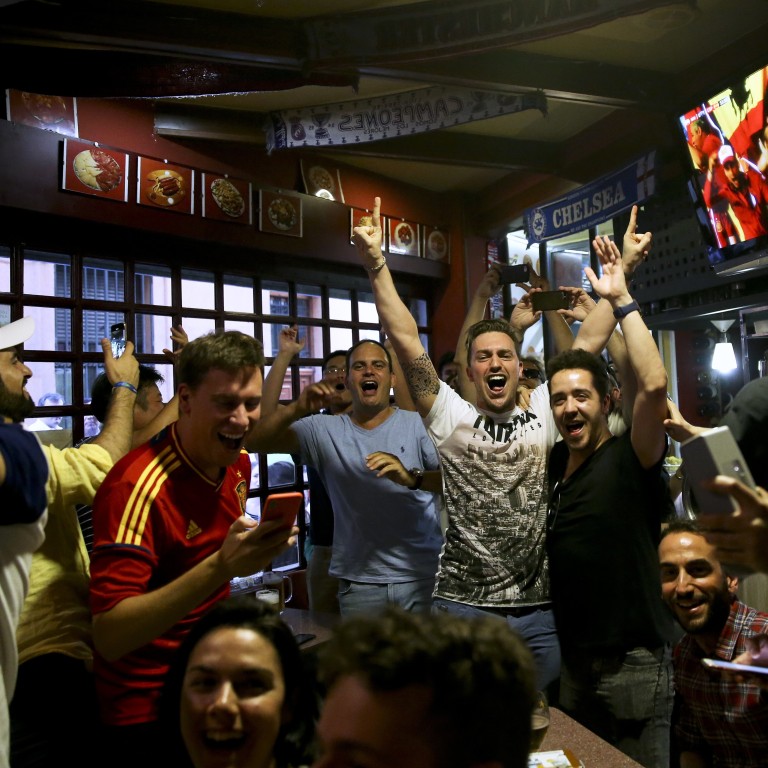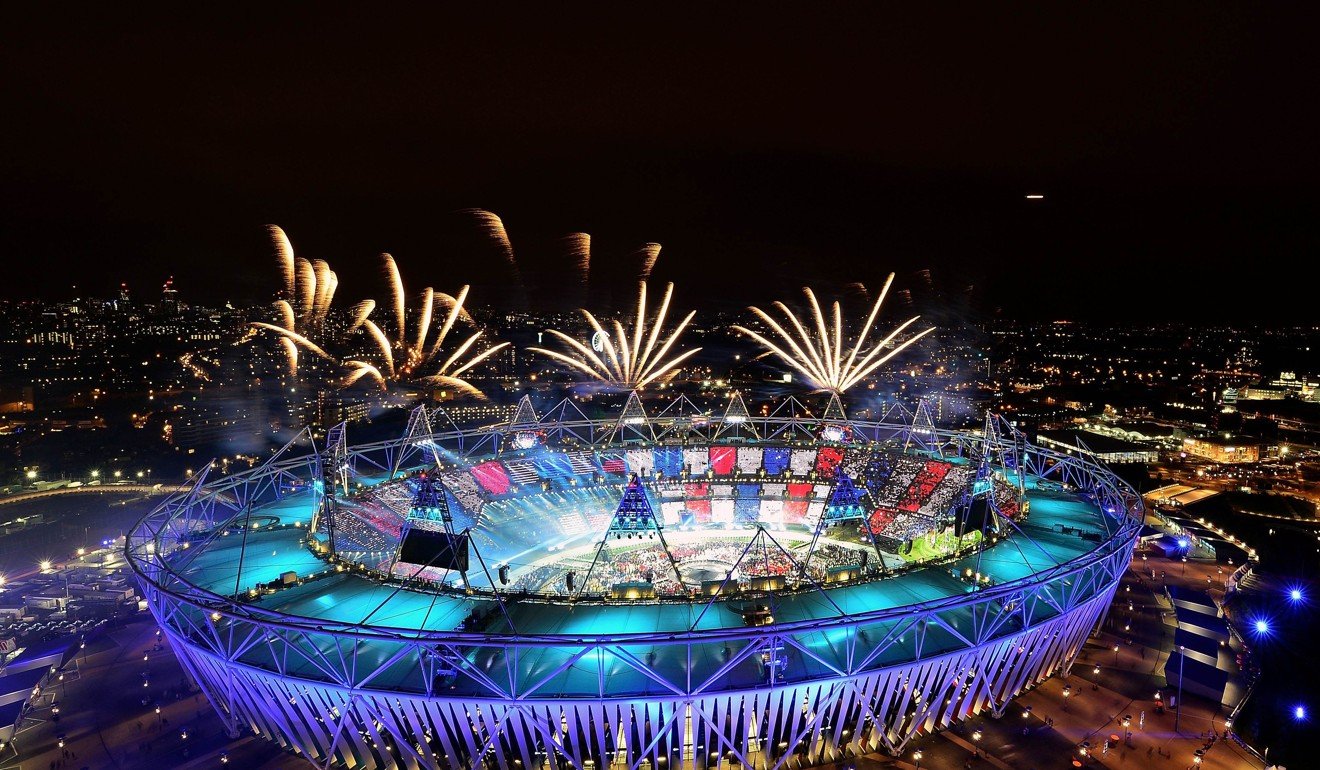
Hong Kong broadcast rights for Tokyo 2020 and 2022 World Cup up in the air
- Costs to show sporting events proving too high as they are often priced the same as for China
- Hongkongers have to pay for more channels with no guarantee of seeing events
At a little after 1pm last Sunday, Tyson Fury and Deontay Wilder touched gloves ahead of the biggest fight in heavyweight boxing in two decades.
Hong Kong’s fight fans were watching, with bars in Wan Chai busier than they have been in months despite the coronavirus battle gripping the city.
Those who stayed away were watching from the sofa but they were not watching on Hong Kong’s television channels.
None of them picked up the rights for the fight, forcing fight fans to the pub or to illegal streams to see the bout that the world was watching.

The closest you could get to seeing either Fury or Wilder on the 40 sports channels on Now TV was a replay of one of the “Bronze Bomber’s” old fights on KNOCKOUTS! on Fight TV.
This is not an unusual story in Hong Kong where sports fans have to pay through the nose for cable or Now TV, and then for a major event such as the Fifa World Cup, Rugby World Cup or Euro 2020 pay even more on top for another package.
It’s good money after bad. If you want to watch Kitchee in the Hong Kong Premier League that’s another HK$50 per game for the club live-stream.
Even if you pay for all the channels, packages and streams, fans are often short changed. Every time there is a major sporting event there follows the inevitable search for where, if anywhere, it will be shown.
Take the UCI Track Cycling World Championships in Berlin. Here is an event where Hong Kong has an Olympic medallist – Sarah Lee Wai-sze won bronze in London in 2012 – and a dual world champion.
Viu TV will show some Euro 2020 matches for free
It is also the final chance for Hong Kong’s cyclists to book a place at the Tokyo Olympics this summer. That’s something to shout about.
But looking at the list of broadcasters on the UCI there is no sign of Hong Kong. It turns out it is on TVB via its MyTV SUPER over-the-top service.
They did not advertise the broadcast until Tuesday. It started on Wednesday. And because the cycling is broadcast in Hong Kong, the UCI’s global live-stream on its YouTube channel is geoblocked. If you want to use that to keep track, you’ll also need to pay for a VPN.

There is uncertainty over whether Hongkongers will get to see Lee and her fellow athletes at Tokyo 2020 this summer.
No one has yet secured the rights to show the Olympics in Hong Kong. In November, TVB dismissed reports it had pulled the plug on a bid as “speculative”, but there has been no movement either.
It was reported that we may have already seen the last Olympics in the city as no broadcasters can afford the US$70 million for the Tokyo and Paris Games; in contrast, TVB paid just US$15 million for the Rio Games.
Hong Kong faces ‘scary’ US$70 million cost to broadcast Olympics
That number was not plucked out of thin air but is believed to be what CCTV paid to show it in the mainland. It’s a bit different when your maximum TV audience is seven million, rather than 200 times that, and no local broadcasters can justify the outlay with no hope of getting it back.
Unless the government, as has been argued for events involving Hong Kong, or someone like LeSports come in with the money, then we will likely miss out.
LeSports presents another interesting aspect to how this all got out of hand. They stumped up a staggering US$400 million for the 2016-19 English Premier League rights, meaning Hong Kong paid the most in Asia per season – HK$1 billion a year.
Needless to say LeSports went under and local broadcasters picked up the pieces for the Premier League and Russia 2018 (for which they paid US$70 million).
That and i-Cable’s controversial bid for the London 2012 Olympics, which had previously been shown on free-to-air TV, changed the game and there’s no going back.
When it comes to Tokyo 2020 or indeed the 2022 Fifa World Cup, which is expected to cost even more than in 2018, we may be saved at the last minute. We have been before.
Relief all round as TVB confirms it will air coverage of the Winter Games
That was the case with the Winter Olympics (a deal was signed a week before the opening ceremony) and the Asian Games in 2018, when i-Cable stepped in at the death amid rumours of a drop in price from US$6 million to US$2 million.
For the 2018-19 Uefa Champions League, rights were only secured days before the group stage kicked off. At least that ended up on the TV. Sometimes fans need to think outside the box.
Take Kitchee’s AFC Cup play-off last year, where they went out on penalties against Malaysia’s Perak. The only available feed was a fan in the stands using Facebook Live on their phone.
What they lacked in professional camera skills, they made up for with their ingenuity. That might be a farce but unless something changes it is also our future.
Let us all hope someone has a phone and a full battery in Tokyo.

